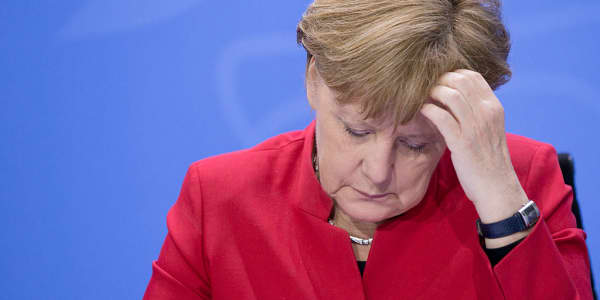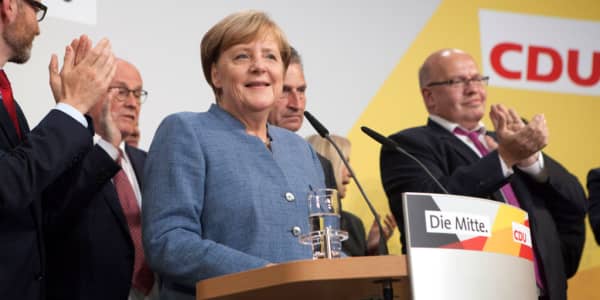A former member of Chancellor Angela Merkel's government said Monday he's concerned about the rise of the far-right Alternative for Germany party, which has secured a place in the Bundestag for the first time.
"It is a movement. It is a protest movement," said Karl-Theodor zu Guttenberg, who served as economics minister and then defense minister in Merkel's administration from 2009 to 2011.
"Part of this movement are people who are racist. Part of this movement are people who are openly anti-Semitic. Part of this movement are people who use language that we have heard in Germany about 80 years ago," Guttenberg said on CNBC's "Squawk Box" a day after Merkel got enough votes to win a fourth term as chancellor.
But the AfD won 12.6 percent of the vote. The party, founded only four years ago, will be the first right-wing nationalist party to enter the German parliament since World War II.
"It's not enough to stay silent" and hope the AfD goes away on its own, Guttenberg said. "So we have to be outspoken and clear about the risks that emerge out of such a group of people. And that's the task Germany has ahead of it."
Georg Pazderski, leader of the AfD's Berlin unit, brushed off questions that the party represents a turn toward divisive politics. "If you want to stigmatize a party, then you put out the Nazi wording and say these are Nazis, these are 'right-wing', don't vote for them because of our history," he said.
Merkel's Christian Democratic Union and its sister party Christian Social Union got 33 percent — not enough to govern alone. That means Merkel needs to forge a coalition with smaller parties in order to form a four-party government, which has not been seen in Germany for decades.
Not too long ago, Guttenberg was seen as a successor to Merkel. But the once-popular politician resigned from her Cabinet in 2011 after admitting to plagiarizing his doctorate.
In August, Guttenberg made a return to the political stage, saying in a speech that Germany would be "in the very best hands" with his "former boss" Merkel.
Guttenberg also said: "I want to thank those people who, quite rightly, sharply criticized me for my failings. I learned much from them." For the past six years, he's been working at an investment firm in New York.
— Reuters contributed to this report.





